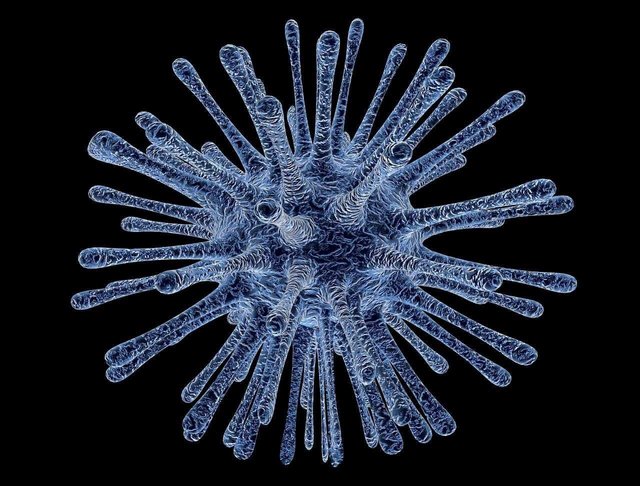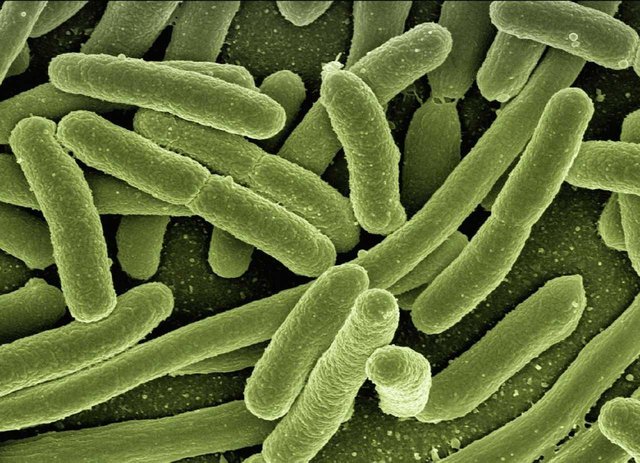Are you infected?
Hello again lovelies, let's discuss some terminologies that you occasionally encounter but don't know what it's called or the basics.
Infection

<center>Tiny but mighty</center>
Simply put, it is the state of being infected, contaminated, having harmful materials in something. When a computer is said to be infected, that's to say it has been exposed to and taken in a virus. The same can be said for living organisms, when a pathogen (bacteria, fungi or virus) gets taken up into the body system, it is said that infection has occurred. It is important to note that not all infections are symptomatic (these are called subclinical infections) and are sometimes more dangerous than symptomatic infections as these can get treated in good time.
Infections are of different types, some of which include;
- Acute infection
- Chronic infection
- Latent infection
- Primary and secondary infections
- Nosocomial infection
- Opportunistic infection, amongst others.
Based on causative organisms, we have;
- Viral infections which are caused by viruses, examples are Influenza (common cold), HIV, Hepatitis etc. Antibiotics do not treat these infections rather antivirals are used.

<center>Bacilli</center>
- Bacterial infections are caused by Bacteria, examples are Cholera, Typhoid, dysentery, most STI (sexually transmitted infection), etc. These can be treated with antibiotics though a major challenge facing the health care sector is the increasing rate of antibiotics resistance in organisms (e.g is Methicillin-resistant Staphylococcus aureus MRSA).
- Fungal infections which are caused by fungi. Abuse or prolonged use of antibiotics get rid of the good bacteria thereby giving room to fungi to grow in its stead, also people with weakened immune system are more prone to be infected. Mostly contracted through contact with skin or inhalation of spores, they affect the skin while the inhaled ones may cause systemic infections. To treat these infections, topical (for skin) and oral antifungal are used. Examples of fungal infections include; athlete's foot and ringworm.
- Parasitic infections are caused by parasites and protozoans that find their way into the body system. Some require vectors. Examples include amoebic dysentery and ascariasis (caused by roundworm).
The above classification cut across the types of infection listed at the beginning of this discussion, so, let's delve further into these types of infections.

<center>You can't see me, but I'm right here
- Acute infection: it is short term, symptoms are quickly observed, and gets resolved within days. Example is Influenza (common cold).
- Chronic infection: this is long term, develop slowly, and may persist for a long period of time (even years). Example is HIV.
- Latent infection: this is an infection that lays dormant in the system, it does nothing and is asymptomatic until it is triggered. Example is Herpes simplex virus infection.
- Primary and secondary infections: Primary infection occurs the first time after being exposed to a pathogen. This is important because your body has no memory of the infection hence not prepared to fight it, subsequent infections by same pathogen will trigger production of antibodies. Secondary infection occurs during or after a primary infection, an example is vaginal yeast infection.
- Nosocomial infection: this is an infection acquired in the hospital, either when you are hospitalized or visiting. Example is MRSA.
- Opportunistic infection: this is an infection that occurs more and is more serious in a person with weakened immune system. Caused by opportunistic pathogens, it takes advantage of the suppression in immunity. Example is Staphylococcus aureus
Posted from myAirClinic Healthcare App. Download Android Version from PLAYSTORE!
You got 1.90% upvote from Yensesa. Thank you for your continues support of Yensesa Exchange and being a member of Yensesa Residual Income
Hello @bookoons your post has been featured on the Stach Post Review Article--Link to post.
Thanks for using the Stach Tag.
Keep Being Creative!.
Courtesy - Stach Curation team
Thanks for using the girlsfoundation tag as one of your tags. Don't forget to follow @girlsfoundation.
you can also support the girlsfoundation by following our curation trail using steemauto